PROJECT Manuka
(New Zealand)
Invitation to Opening Universities for Refugees
3C Forum (Collaborate, Create, Change)
We are writing to invite you to participate in the upcoming Second 3C Forum which will be held on 13-14 November 2017 (9:30 am -5:00 pm) at the University of Auckland, Epsom Campus.
The United Nations High Commissioner for Refugees notes that there are now more than 22 million refugees globally and highlights the need to think of creative and empowering solutions to supporting those who have been forcibly displaced. Open Universities for Refugees (OUR) is an initiative that brings together institutions which offer, and are willing to offer, higher education courses and/or diploma and certificate programmes to refugees and displaced people, and to create an open and accessible knowledge network accessible by all. The First 3C Forum was co-organised by UNHCR, Malaysia and OUR in August 2016.
The Second 3C Forum, which will be co-organised by youth-led initiative Empower and hosted by University of Auckland, will seek to facilitate effective collaborations amongst participants leading to new initiatives to increase access to higher education opportunities, not only for the newly resettled refugees in New Zealand, but also for the displaced communities in the region. Our main goal is to involve as many interested parties and stakeholders as possible to ensure that everyone who has the potential to develop solutions to the challenges posed by the provision of higher education in New Zealand is included. To that end, we welcome your suggestions regarding potential participants, and would be equally delighted if you could utilise your networks to spread the word.
The 3C Forum will use unconference format, the principal characteristic of which is that the agenda and themes are not defined in advance but rather emerge from participants during the course of the forum. As such, themes are dependent on participants’ own priorities and aspirations. These themes will be discussed in open-ended discussion sessions on the first day of the 3C Forum and all participants are invited to attend and speak. The second day of the 3C Forum will facilitate working groups in creating action plans and developing solutions.
If you would like to attend, please visit http://initiativeour.org/project-manuka-registration/ and complete the on-line registration form by 27 September 2017.
Attendance is free. If you have any questions please do not hesitate to contact us via email, Rez Gardi () and Gül İnanç ().
We very much look forward to your active participation during the 3C Forum on 13-14 November 2017.
Rez Gardi, Empower/OUR
Jay Marlowe, University of Auckland
Gül İnanç, OUR
“If you have built castles in the air, your work need not be lost; that is where they should be. Now put the foundations under them”. – Henry David
After the successful completion of 2nd 3C Forum Proposed Working Groups/ Creating Action Plans (Day 2-14th November, 2017) have been agreed on:Working Group A – Building a new knowledge network, which will bring together representatives from secondary education, universities, polytechnics, Ministry of Education, NGOs, newly settled refugee communities.
Short Term Action Plan: Leaders will meet in early January 2018 to plan the symposium by May 2018.
Working Group B – Building a new model of collaboration among existing support and mentoring networks
Short term action plan (by March 2018) to be decided by the leaders
Working Group C – Supporting and/or collaborating with the new NZ government to come up with new educational strategies
A – Need for a new framework for diploma recognition and accreditationShort Term Action Plan: An informative meeting will be organized at the national level with the provosts of the universities and polytechnics ( invitation by the new Minister of Education)
B – Need for a new academic network where universities in SEA region, Australia and New Zealand will collaborate to 1- offer higher education for the displaced communities in SEA (blended programs) 2- collect data and create policy reports (interdisciplinary) 3- enhance international and institutional awareness and understanding of the need for higher education for the refugees (current and newly resettled) and displaced communities in SEA.Short Term Action Plan: apply WUN Research Fund in 2018.




